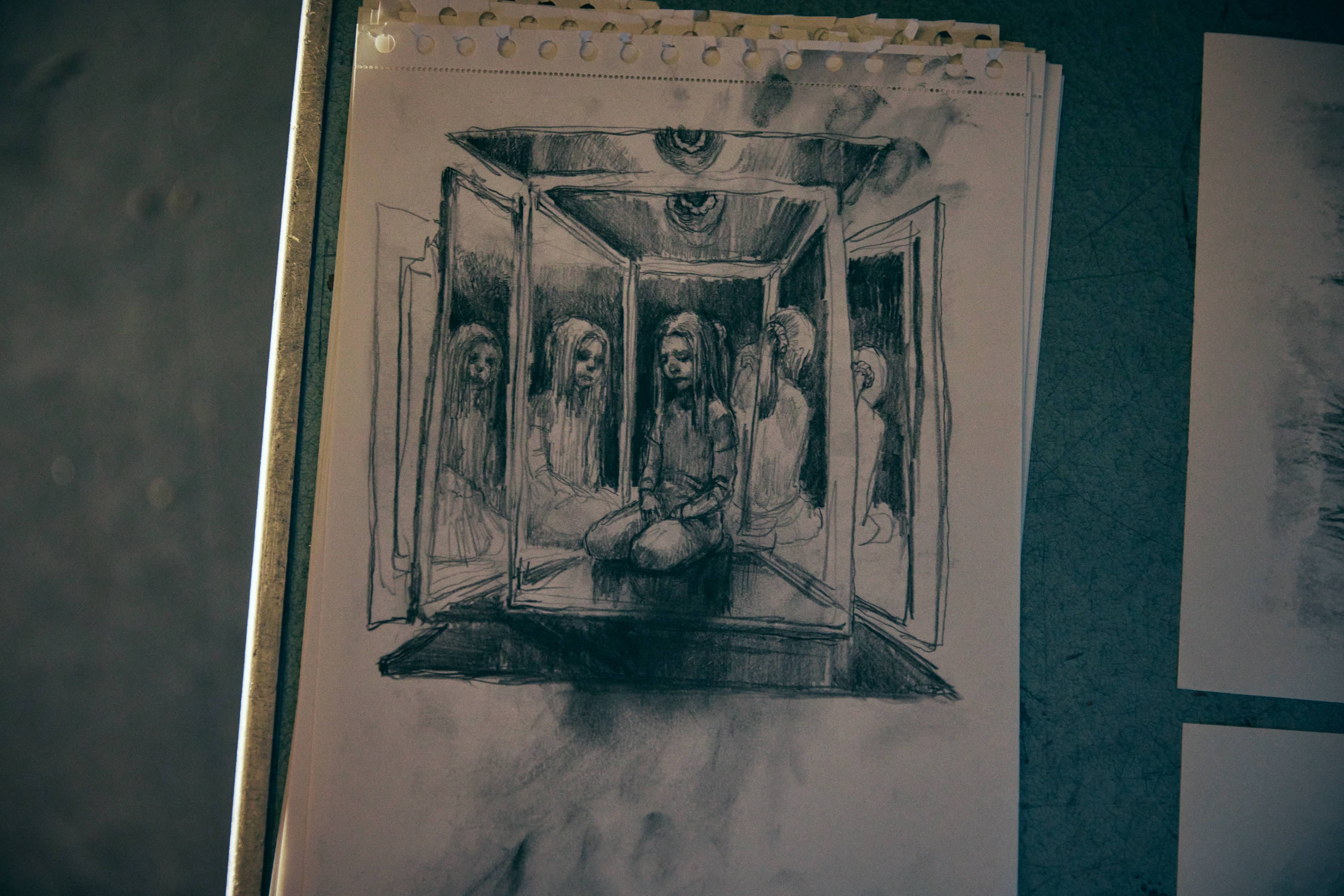What to Watch Verdict
Nightmare Alley features outstanding performances but is overlong and lacks the engagement and vitality that's defined Guillermo del Toro's work for so long.
Pros
- +
🔮 Cate Blanchett is killer.
- +
🔮 Carnival vibes are standout.
- +
🔮 The glimpses of GDT familiarity feel like home.
Cons
- -
🔮 Duration drags.
- -
🔮 Sometimes stale cinematography.
- -
🔮 Missing GDT's usual spark.
Throughout Nightmare Alley, Guillermo del Toro appears to fight against his trademark directorial instincts. The cautionary tale, as a purgatory of grifts, lies, and consequences, struggles to be as enthralling a noir we’d expect from del Toro.
The cast — including the electric Rooney Mara, femme fatale Cate Blanchett and exploitative Willem Dafoe — deserves its praise. It's worth the ticket price right there. But it's hard to move from “like” to “love” when describing the film itself... Production design stuns, but cinematography swirls a dusty shade of haze at times and the experience lacks vitality and engagement that’s become customary across GDT’s work.
Stanton 'Stan' Carlisle (defined, merely, by Bradley Cooper’s smolder) stumbles into a carnival troupe that offers him work, shelter and purpose. Alcoholic Pete Krumbein (David Strathairn wobbles with grace) teaches Stan the performative art of theatrical mentalism — faking telepathy and ghostly contact through hand signals. Stan works his charms on human conduit Molly (Rooney Mara as the lovestruck mark), who he whisks away from big-top lifestyles for swankier gigs on high-society 1940s stages. That’s when Lilith Ritter (stone-cold killer Cate Blanchett) challenges Stan’s powers in front of a crowd. He peacocks out of spite and becomes a private consultant to wealthy clients who believe his words are otherworldly. The only problem? If Stan’s showmanship ever fails, he’ll face more than refund requests.
Introductions to a roster of carnival strongmen and feral creatures from “nightmare alley” are where the film dazzles. Cooper waltzes into a world of pickled abomination babies in glass jars, “Snake Man” contortionists (master monster actor Troy James), and trickster entertainment that’s an outcast's paradise. Del Toro rationalizes wonders as Zeena (Toni Collette) tells fortunes with the out-of-sight help of her hammered husband or as Bruno (Ron Perlman) slams iron weights in a miniature wrestling ring. Mechanical funhouses and canvas tents create this sideshow escape that thrives under del Toro’s immense understanding of how to tell these “surreal” characters, but that magic fades as Stan and Molly escape to New York City’s blinding lights. Del Toro’s interpretation of noir visualizations is sometimes muted and rigidly unreal, save one transcendent bleeding angel sequence that evokes Crimson Peak.
We'd never say Guillermo del Toro should stay in his supremely supernatural lane — filmmakers should try new environments and challenges. The issue in Nightmare Alley is not del Toro doing something different, but more how he loses battles against tone as his adaptation sways from daydreaming escape to con-artist’s lament. Grief and sadness become one-dimensional narrative motivations — uncharacteristic when compared to del Toro’s usual balancing of emotions both solemnly dark and romantically bright. Maybe that’s unfair to heap solely on del Toro’s execution solely — Bradley Cooper relies too much on facial expressions that are just that, face value. But Nightmare Alley relies on softness and lingering depressives, and they struggle to sustain over time.
There’s no denying a cast of multiple awards nominees are the reason you’ll stay glued to your seat — with a spotlight on Cate Blanchett as the dangerously bedeviled psychiatrist Lilith Ritter. Don’t expect subtlety here — character impulses aren’t meant to be secrets, but someone like Blanchett savors their criminal intent. Cooper's schtick is slick and captivating, with enough punch to understand how Rooney Mara’s character is smitten from the initial carousel rides. Blanchett shines whether she’s brandishing a firearm, digging into an unsuspecting patient’s psyche, or turning tides against a cowardly man with a foolish plan — del Toro writes her entrapment and cutthroat guile with emphasis. He punctuates Richard Jenkins’ connected socialite with depths of extreme sadness — a sorrowful father quivers under the weight of his unforgivable confessions to a false healer. Down the line Dafoe’s callousness, Mara’s turned cheeks, Collette’s deadlocked eyes — the ensemble is largely impenetrable.
Thematically, Nightmare Alley is both stunning and numbing in its portrayal of fakeness, guilt and the fallacy of escapes. Stan’s introduction is over a flaming body, raising immediate guards and removing other questions. As he becomes Pete’s student, Stan’s taught never to engage in “spook” shows and to remain impersonal through the charade in case he starts believing he possesses inexplicable abilities. The proudly sober scammer proves that our greatest fault is to confuse “nice” with “good.” It’s a strong message that eventually leads to gruesome depictions of mutilating violence and karmic circle-backs that del Toro embraces in their everlasting bleakness. It's just a shame some elements are telegraphed so early, which dampens the epiphanies that follow.
The transformative look of Nightmare Alley —1940s stages, the costuming and automobile props — all deserve the Academy's recognition. Dan Laustsen’s cinematography wavers between awe-striking snowfall capture and sunburnt, duller appreciations of old-school carnival lifestyles. Nathan Johnson’s score haunts, then hop-skips in the right moments. It’s all wrapped up with a superb cast that remains committed to Guillermo del Toro no matter the task. It's just more surprising that the lulls in the film suggest del Toro — for the first time — doesn’t feel at home amongst the monsters of his latest feature.
Matt Donato is a Rotten Tomatoes approved film critic who stays up too late typing words for What To Watch, IGN, Paste, Bloody Disgusting, Fangoria and countless other publications. He is a member of Critics Choice and co-hosts a weekly livestream with Perri Nemiroff called the Merri Hour. You probably shouldn't feed him after midnight, just to be safe.












